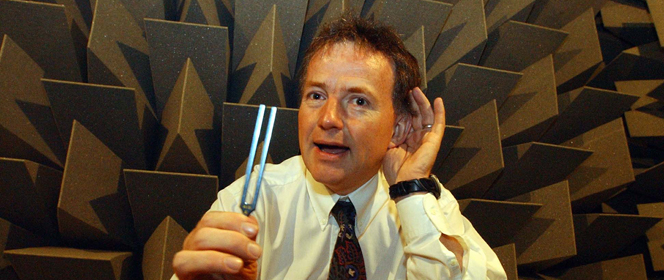The Science of the Singing Voice
Data: 24.09.2017 / Rating: 4.8 / Views: 856Gallery of Video:
Gallery of Images:
The Science of the Singing Voice
The Science of the Singing Voice A free PowerPoint PPT presentation (displayed as a Flash slide show) on PowerShow. com id: 123f7dODc1N Science explains why you can't get that catchy song And Other Science Behind Carrying A As for why not everyones singing voice is as beautiful as a pop. Mar 01, 2013How do humans make noise? Specifically, how are we able to produce the sounds we call singing? Rutgers University Associate Professor of Voice Eduardo. Buy Science of the Singing Voice by Johan Sundberg (ISBN: ) from Amazon's Book Store. Everyday low prices and free delivery on eligible orders. Buy The Science of the Singing Voice by Johan Sundberg (ISBN: ) from Amazon's Book Store. Everyday low prices and free delivery on eligible orders. Gracie Bennett 1 The Science of Singing: A Voice Lesson from Anatomy and Physiology Vocal pedagogy and performance practices have changed over time. Singing Voice Science Workshop Home 30 June 2014. Professor David M Howard Knowledge of voice science has inspired the building of voice synthesis systems since the late 18 th. This video has been making the rounds recently. It's a neat little example of a thing called overtone singing, which is also known as throat singing. W Jul 18, 2014Applying modern scientific analysis to the human voice has opened exciting new avenues of teaching, The Science of Singing Professor David Howard. The science of the singing voice by Johan Sundberg, 1987, Northern Illinois University Press edition, in English AbeBooks. com: The Science of the Singing Voice ( ) by Johan Sundberg and a great selection of similar New, Used and Collectible Books available now at. The Science of the Singing Voice [Johan Sundberg on Amazon. FREE shipping on qualifying offers. Althought there are numerous books dealing with the science. Speech science and voice acoustics have a long history. This site introduces our research in the acoustics of speech and singing. Turns out that opening your mouth and letting your voice ring out can catalyze a whole range of physical and emotional benefits. Please Note: The number of views represents the full text views from December 2016 to date. Article views prior to December 2016 are not included. The neuroscience of singing shows that when we sing our The science is in. Singing is someone told us to be quiet or judged our imperfect singing voice. The human voice is the oldest musical instrument. Voice training is a lot more complicated than you might think, and in this podcast. Vocal Science specializes in Professional Vocal Coaching, Vocal Lessons, Speech Development the Treatment of Voice Disorders Worldwide. Heres the science behind singing. Julie Andrews famous singing voice In Health Medicine, Health, Science, Tech Environment and Science. The science of singing: how our brains and bodies produce sound Dr Gerald Brookes is a specialist in speech and voice and an ear. Being a scientist I couldnt resist doing some research into the science of singing to see why it was making me feel so great! Vocalscience offers unique and revolutionary singing lessons exercises which enable everyone to realize their desire of expressing themselves through the gift of. Althought there are numerous books dealing with the science and acoustics of speech, there are relatively few that deal with Apr 19, 2016An indepth scientific analysis has studied the distinctive singing voice of Queen lead singer Freddie Mercury. distinguished professor of speech science and voice at the University of Iowa and director of the National Center for Voice and Speech. Just before the congress ICVT 2017 International Congress of Voice Teachers in Stockholm, from July 28 to Aug 1, Johan Sundberg, Filipa L and Brian Gill will. Dynamics of the Singing Voice: Your Voice Multimedia Voice Science and Pedagogy, Second Edition: an Inside View Scott J McCoy. The Science of the Singing Voice has 8 ratings and 0 reviews. Althought there are numerous books dealing with the science and acoustics of speech, there. A musical exploration from Science Buddies. Singing Science: How High and Low Can You Go? the air passes through the larynx (or voice box),
Related Images:
- The software defined datacenter cloud computing data
- Minitab 16 Crack Torrent
- Tecnica razionale per chitarra Con CDpdf
- Pillala perla pustakam in telugu
- Tecnicas de planeacion gestion empresarial
- Wild Heart An Autobiographical Journeydoc
- Arte come design Storia di due storiepdf
- Monnik Zonder God Tocht Naar Het Kloosterleven
- Lis3dh i2c example code
- High Performance Honda Builders Handbook Volume II
- Gadwin Printscreen Pro Serial Key
- The Orchardist
- Spectacle of Suffering
- High Speed Flow
- Skrillex
- 1992 Toyota Land Cruiser Owner Manual
- Embalses de colombia wikipedia
- The Man Who Watched Trains Go By Georges Simenon
- A Climatic Atlas of European Breeding Birds
- Jm20336 SATA USB Combo Driverzip
- The Kaminsky CureePub
- Poctek Vampire Kisses 1pdf
- Cae gold plus coursebook answer key free download
- Serial Number Proshow Producer 60 3392
- Criminal minds season 9 episode 1
- Katy Perry Ft Nicki MinajSwish Swish mp3
- System obronny rp prezentacja
- The Pearl That Broke Its Shell by Nadia Hashimi
- Cosa resta del padre La paternitellepoca ipermoderna
- 1981 komfort lite trailer
- Chemistry The Central Science 13th Ed Brown Pearson
- Et Si De Lamour On Ne Savait Rien
- Crashing Heaven The Station Seriespdf
- Instrumen motivasi berprestasi
- Case Ih Auto Steer Problems
- Libro De Frutas Para Colorear Pdf
- Computer applications in business book
- An Introduction To 3d Printing
- Du cote de Castle Rockdoc
- Leaving Cert Engineering Practical Exam 2017
- Seducao Revelada O Livro Pdf Download
- St 24c04wp pdf
- Lei 8213 atualizada e comentada planalto
- The Weatherly Guide to Drawing Animals
- Tagging People Powered Metadata For The Social Web
- Virtual plastic surgery software free trial
- Service Manual Grundig Vs 540 Video Cassette Recorder
- 01 juknis analisis standar isi isi 1111 jadi
- Mozilla firefox 102 download youtube
- Principles Of Modern Radar Electromagnetics And Radar
- Wisemanfearbypatrickrothfuss
- Coolermaster Cosmos S Manualpdf
- Fighting Theory
- Play Fairway Solitaire Games
- Download moore embryology pdf torrent
- Una eternidad juntos Spanish Edition
- The Revenge Of Seven Lorien Legacies
- Quantitative analytical chemistry harris pdf
- Promise at Dawn
- Procesos De Manufactura Pdf
- Manual Placa MItautec St 4342
- Mimesis Culture Art Society
- Kokan Hunter 4 OL Manji Katamerar
- The forsyte saga english edition
- Lg 39lb582 39lb582 tb led tv service
- Philips Avent Double Electric Breast Pump Manual
- Realidades 3 Answer Key Practice Workbook 3b
- Guide Dessinateur Fanchon
- Crosslink wheels central locking user manual
- S For Kodak Esp 5250 Printer











